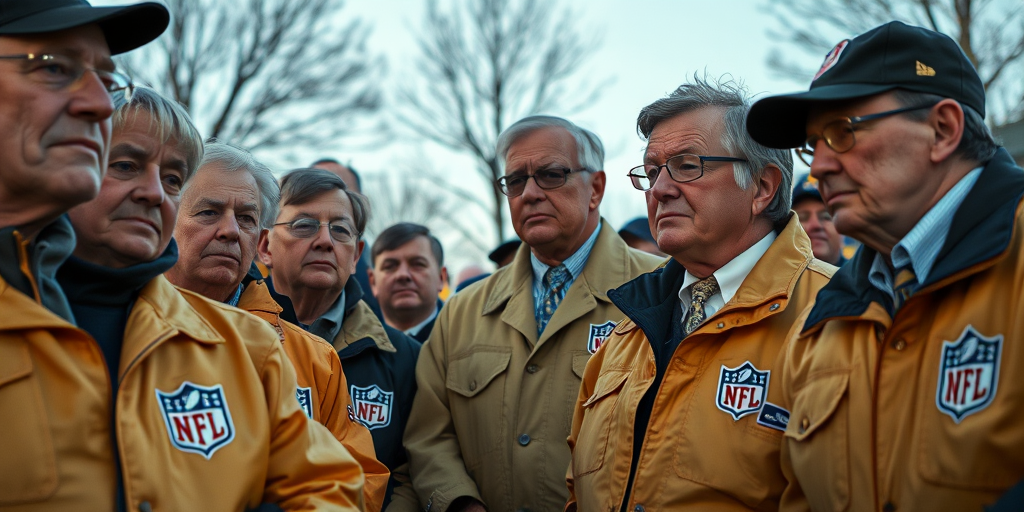Paul Tagliabue’s NFL Legacy: Enriching the League While Facing Challenges
During his 17 years as the NFL commissioner from 1989 to 2006, Paul Tagliabue’s influence on the league is undeniably profound, characterized by unprecedented financial growth, increased diversity, and complex challenges surrounding player health. As New Haven residents connected to the national sporting narrative, understanding Tagliabue’s impacts on both national and local levels is crucial.
Transforming the Financial Landscape
Under Tagliabue’s stewardship, the NFL experienced monumental financial success. During his tenure, league revenues soared, largely driven by lucrative television contracts and the expansion of franchises, culminating in a revelation that enriched the entire football community. New stadiums proliferated alongside the NFL’s expansion to 32 teams, signaling robust league health and continuity. “Paul’s commitment to financial innovation has long-lasting impacts,” notes sports economist John Chapman from nearby Yale University. “Local markets like New Haven have indirectly benefited through increased viewership and fan engagement.”
Diversity Milestones: Expanding Opportunities
Paul Tagliabue’s legacy also reflects a deep commitment to inclusive practices within the NFL. The introduction of the “Rooney Rule,” requiring teams to interview minority candidates for coaching positions, showed his resolve toward fostering diversity. This rule has gradually included other significant roles within the league. Although credited to Dan Rooney from the Pittsburgh Steelers, the initiative could rightfully bear Tagliabue’s influence given his active promotion for diversity. Annabelle Simmons, a community leader in New Haven, highlights that “The Rooney Rule’s principles resonate within our own community’s efforts to ensure diversity in various sectors.”
Acknowledging Global Popularity’s Ripple Effects
Tagliabue’s success is also seen in the international expansion of American football’s popularity. Without labor stoppages under his reign, the sport’s appeal transcended borders, culminating in regular-season games in international cities — including initial games in Berlin. Local soccer enthusiast Marcos Estrada explains, “Interest in NFL games abroad reflects cultural exchanges that enhance New Haven’s international student community and their engagement with American traditions.”
Confronting Concussion Challenges
However, not all aspects of Tagliabue’s tenure have been positive. Critical issues related to player health, particularly concussions, have sparked debates. He initially downplayed their severity by regarding them as media-induced problems, a stance he later regretted and retracted. Ben Rodriguez, a physical therapist from the local area, observes, “Recognizing and addressing concussions has become a pivotal issue in sports and healthcare, echoing broader impacts on youth sports within our community.”
Tagliabue’s Response to Crises: Lessons Learned
Tagliabue’s handling of crises reflected lessons from history, notably postponing games after the September 11 attacks. This decisive action avoided the errors of his predecessor, Pete Rozelle, who regrettably moved forward with games post-President Kennedy’s assassination. Such leadership decisions resonate with crisis management strategies within broader organizations, informing community leadership responses to emergencies.
Keeping New Orleans United
Tagliabue is remembered for championing the New Orleans Saints’ continued presence in their home city post-Hurricane Katrina, guiding owner Tom Benson away from relocation. The eventual comeback led by Drew Brees and Sean Payton underscores how community loyalty and resilience can parallel New England’s approaches. For New Haven, tales of perseverance inspire local narratives within our own sports teams and community rebuilding efforts post-crisis.
Future Implications: Navigating Complex Legacies
As the NFL evolves, Tagliabue’s influence is a reminder of the delicate balance between growth and responsibility. His career demonstrates that prosperity necessitates acknowledgment of ethical challenges such as player health and social initiatives. For New Haven, residents are encouraged to engage in community dialogues to explore similar balances, emphasizing discussions around local policies parallel to national narratives.
For those seeking to explore the broader impact of Tagliabue’s policies or engage in football-related community activities, the local sports council and various organizations provide excellent resources. These bodies can offer forums, events, and action groups to translate lessons from Tagliabue’s legacy into local-progressive initiatives.
Paul Tagliabue’s time as commissioner has deeply influenced how football integrates into cultural fabric — a legacy that continues to impact Woke news readers and New Haven’s community interest. As the city continues to embrace new sports possibilities, varied perspectives ensure that both our local identity and the connection to national significance remain vibrant and inclusive.







